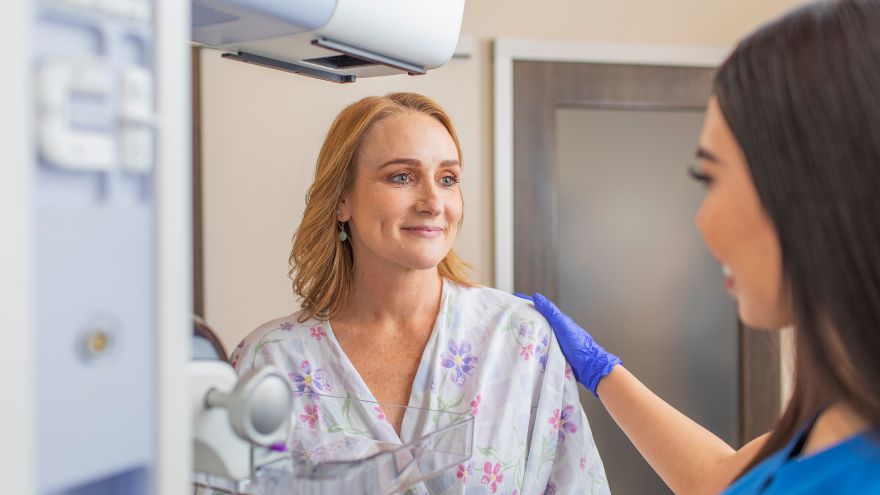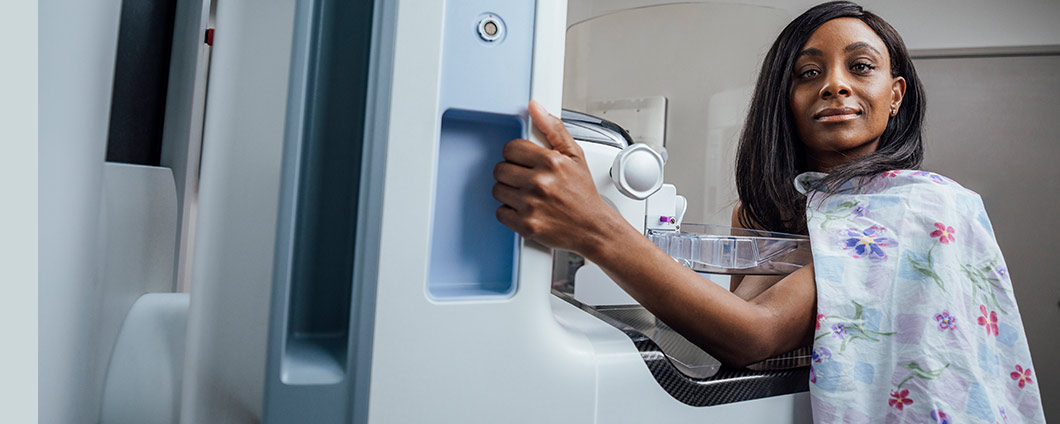Search
Results for 'find a primary care physician'
Clear-
Optimizing Mammogram Screenings: A Genetic Approach to a Personalized Screening Schedule
© Arthon Meekodong via Canva.com Breast cancer screening has long been a cornerstone of women's healthcare. With 1 in 8 women diagnosed with breast cancer in their lifetime1, the United States Preventive Services Task Force (USPSTF) has developed screening recommendations to help detect early-stage cancer. Notably in 2023, the USPSTF revised the recommended age for biennial mammogram screenings for women with average risk to start at age 40 instead of 502, estimated to result in 19% more lives being saved3 by starting screening earlier. While initiating screening at an earlier age offers advantages to a wide demographic, concerns about the potential of over-screening prompted research into the feasibility of identifying women with lower breast cancer risk who could safely delay mammograms. While guidelines address high-risk individuals, a notable gap exists in providing recommendations tailored to those at lower risk. To gain insight into a patient's risk level, physicians are able to utilize genetic testing to understand an individual's genetic makeup, providing precise insights into their predisposition to various health conditions, including breast cancer. Armed with this genetic information, healthcare providers could craft tailored screening strategies that align with an individual’s specific risk profile. This genetic risk-based approach underscores the value of genetics in individualizing the onset of screening to help avoid over-screening and its associated costs. Surprisingly, genetic information is not currently being widely utilized to identify women at risk of breast cancer or other diseases in clinical practice, despite its potential to make a significant positive impact for patients. A recent retrospective analysis of 25,591 women from the Healthy Nevada Project4 sheds light on the potential benefits of this genetic risk-based approach. The study classified 2,338 (9.1%) of these women as having a low genetic risk for breast cancer. What's remarkable is that these women exhibited a significantly lower and later onset of breast cancer compared to their average or high-risk counterparts. This finding suggests that it might be safe for low-risk women to delay mammogram screening by 5 to 10 years without compromising their health.
-
Why Mammograms Are Vital for Early Breast Cancer Detection | Renown Health
Breast cancer affects 1 in 8 women in the U.S. each year, making early detection crucial in improving the chances of successful treatment. Early Detection for Treatment and Peace of Mind Mammograms are noninvasive X-rays used to detect cancer and other abnormalities in the breast. They are the most effective screening tool for detecting breast cancer early, allowing for timely treatment before the disease can spread and helping to improve treatment outcomes. To help guide you through the mammogram process, we spoke with Elizabeth Kang, PA-C, at Renown Breast Surgery Care to equip you with expert knowledge on what to expect and why screening is so important. How Accurate are Mammograms? 3-D mammography technology at Renown Breast Health Center can detect 41% more cancers and reduce the number of false-positive results compared to plain film mammography. Benefits of 3-D mammography include: Providing better, clearer images, with higher diagnostic accuracy Allowing radiologists to see more abnormalities in the breast Helping doctors spot more cancers and avoid false positives, especially if you have dense breast tissue Reduced callback rates for findings on screening Mammogram Screening and Breast Exam Recommendations Renown Women's Health recommends the following breast exam guidelines: Age 18-39: Consult your primary care provider for a Risk Assessment and start breast exams at age 25. Age 40+: Get your annual mammograms. Family history: Begin screening 10 years before your youngest family member's age at diagnosis. For example, start at age 35 if a family member was diagnosed at 45. Self-awareness: Be familiar with the look and feel of your breasts and report any changes to your care provider. Age 75+: Continue annual mammograms if life expectancy exceeds five to seven years. What screenings are available for women with breast implants? Women with breast implants can and should still receive mammograms, and it’s essential to have these screenings done by an experienced team. Be sure to inform your healthcare provider and mammogram technicians about your implants, as they may recommend special techniques or steps to detect abnormalities and ensure accurate results.
Read More About Why Mammograms Are Vital for Early Breast Cancer Detection | Renown Health
-
Ladies! Get Screened for Breast Cancer
Early detection is a significant piece of the breast cancer puzzle. Susan Cox, Renown Health Senior Director of Cancer Operations, discusses what you need to watch for and how the latest technology can help detect potential cancer sooner. When should women start getting breast exams? It depends on risk factors: Average-risk women: Most medical organizations recommend the first mammogram between 40 and 44. Higher-risk women: Dependent on their high risk, which will dictate when they start screening, but generally around the age of 30 and not before 25 years old.
-
Mammograms
Breast Screening at Renown Women's Health: Because breast health is YOUR health. 1 in 8 women in the U.S. face a breast cancer diagnosis each year. Early detection through annual mammograms significantly increases the chances of successful treatment. At Renown Women’s Health, we provide expert, compassionate care, guiding you through each step of your mammogram. Our advanced 3D technology detects 41% more cancers and reduces false positives, lowering the need for rescreening. Join the thousands of women in northern Nevada getting screened and putting their health first. We offer mammograms at our four imaging locations in Reno and Sparks, Nevada, providing up to 40 daily appointments with short wait times.
-
Life-Saving Mammograms: Real Women, Real Stories
Renown patients share how early mammogram screenings transformed their lives. From detecting cancer in its earliest stages to celebrating successful recoveries, these stories emphasize the importance of regular screenings and taking charge of breast health. Early detection is key! Book your mammogram with Renown Women's Health and prioritize your breast health. Book Your Mammogram Angie T. "I'm so grateful that the cancer was caught early. Those screening exams are so important and actually saved my life. I encourage women to make time to get their mammograms like their lives depend on it; because in some cases, it does." Amber S. “I was diagnosed with breast cancer at the age of 40 with what would have been my first annual screening exam. This was caught in the earliest stage possible with many of my findings being only pre-cancerous. Because of early detection, I did not have to have chemotherapy or radiation as part of my treatment plan.” Monica T. “I truly believe the yearly 20-minute diagnostic mammogram screening and findings saved me from allowing cancer to take control of my future.” Jes H. “It is because of breast cancer risk assessment testing that I was able to identify my risk for breast cancer early. I am so very thankful that I am going to be able to watch my children grow up.” Melissa P. “A yearly mammogram can save your life! A routine mammogram found my cancer at stage 1 when it was easily treated! “ Sharon C. “Despite having minimal family history, I was diagnosed at 47. Renown provided exceptional care for both my double mastectomy and reconstruction. For me, knowing my body was the key, when I felt like something was not right, I followed up with my physician and made sure I was doing everything to minimize my risk.” Jamie V. “My annual mammograms have detected 3 lumps in the last 10 years. Two were benign and one was cancer. My annual mammogram and then my ultrasound saved my life by detecting my cancer in its earlier stages.”
Read More About Life-Saving Mammograms: Real Women, Real Stories




